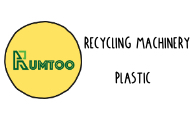Deposit & Return Schemes (DRS) have proven to be a successful strategy in increasing recycling rates in Northern Europe. These schemes incentivize consumers to return their plastic bottles and containers by offering a small cash return for each item recycled1.
Countries such as Germany, Norway, and Sweden have implemented DRS with great success. In Germany, for instance, the introduction of a DRS in 2003 led to a significant increase in the recycling rate for single-use bottles, reaching over 98% in 20191. Similarly, in Norway, the recycling rate for plastic bottles is now over 90%, thanks to a well-functioning DRS1.
The success of DRS in these countries can be attributed to several factors. First, the financial incentive encourages consumers to return their plastic bottles and containers for recycling. Second, the schemes are often accompanied by effective infrastructure, such as reverse vending machines, which make it easy for consumers to return their items1.
Moreover, DRS have also been recognized for their role in reducing littering. By providing an incentive to return plastic items, these schemes discourage consumers from discarding them in the environment1.
Despite the success of DRS in Northern Europe, their implementation has faced opposition in some Southern European countries, where traditional collection systems are preferred1. However, the proven success of DRS in increasing recycling rates and reducing littering suggests that they could play a significant role in improving plastic recycling across Europe.
Reproduction interdite sans autorisation.:Machinerie Rumtoo " Le succès des systèmes de consigne et de retour en Europe du Nord

 Machinerie Rumtoo
Machinerie Rumtoo Inquire Now
Inquire Now 